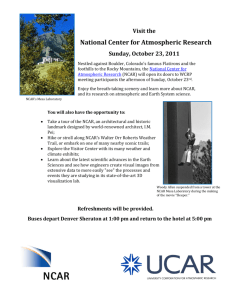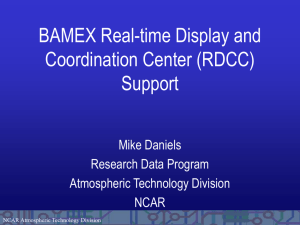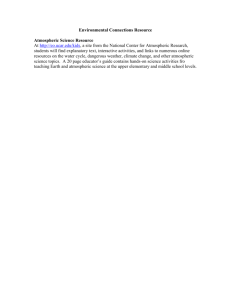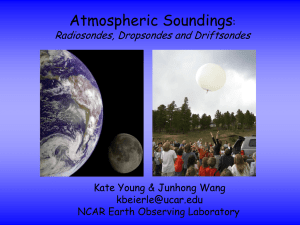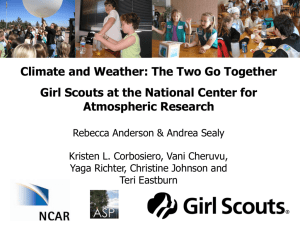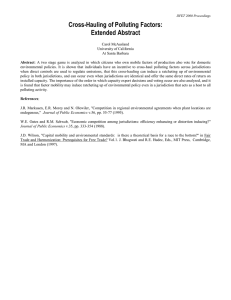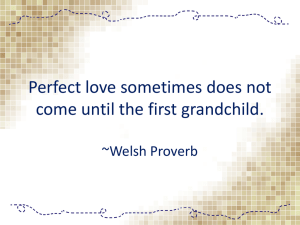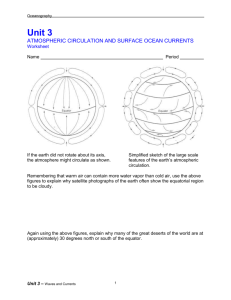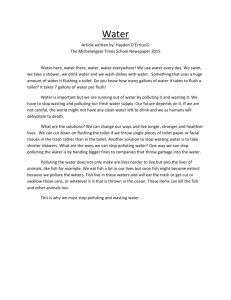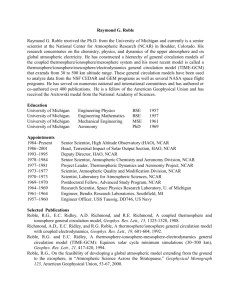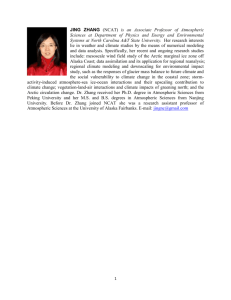Climate Catastrophe
advertisement
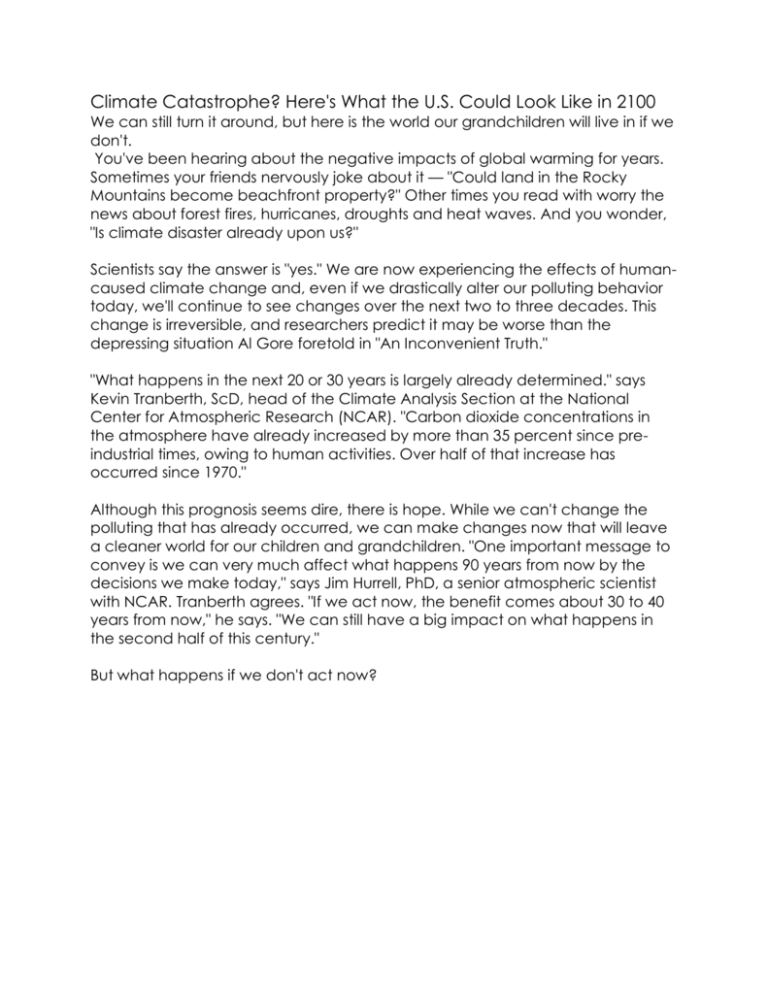
Climate Catastrophe? Here's What the U.S. Could Look Like in 2100 We can still turn it around, but here is the world our grandchildren will live in if we don't. You've been hearing about the negative impacts of global warming for years. Sometimes your friends nervously joke about it — "Could land in the Rocky Mountains become beachfront property?" Other times you read with worry the news about forest fires, hurricanes, droughts and heat waves. And you wonder, "Is climate disaster already upon us?" Scientists say the answer is "yes." We are now experiencing the effects of humancaused climate change and, even if we drastically alter our polluting behavior today, we'll continue to see changes over the next two to three decades. This change is irreversible, and researchers predict it may be worse than the depressing situation Al Gore foretold in "An Inconvenient Truth." "What happens in the next 20 or 30 years is largely already determined." says Kevin Tranberth, ScD, head of the Climate Analysis Section at the National Center for Atmospheric Research (NCAR). "Carbon dioxide concentrations in the atmosphere have already increased by more than 35 percent since preindustrial times, owing to human activities. Over half of that increase has occurred since 1970." Although this prognosis seems dire, there is hope. While we can't change the polluting that has already occurred, we can make changes now that will leave a cleaner world for our children and grandchildren. "One important message to convey is we can very much affect what happens 90 years from now by the decisions we make today," says Jim Hurrell, PhD, a senior atmospheric scientist with NCAR. Tranberth agrees. "If we act now, the benefit comes about 30 to 40 years from now," he says. "We can still have a big impact on what happens in the second half of this century." But what happens if we don't act now?
